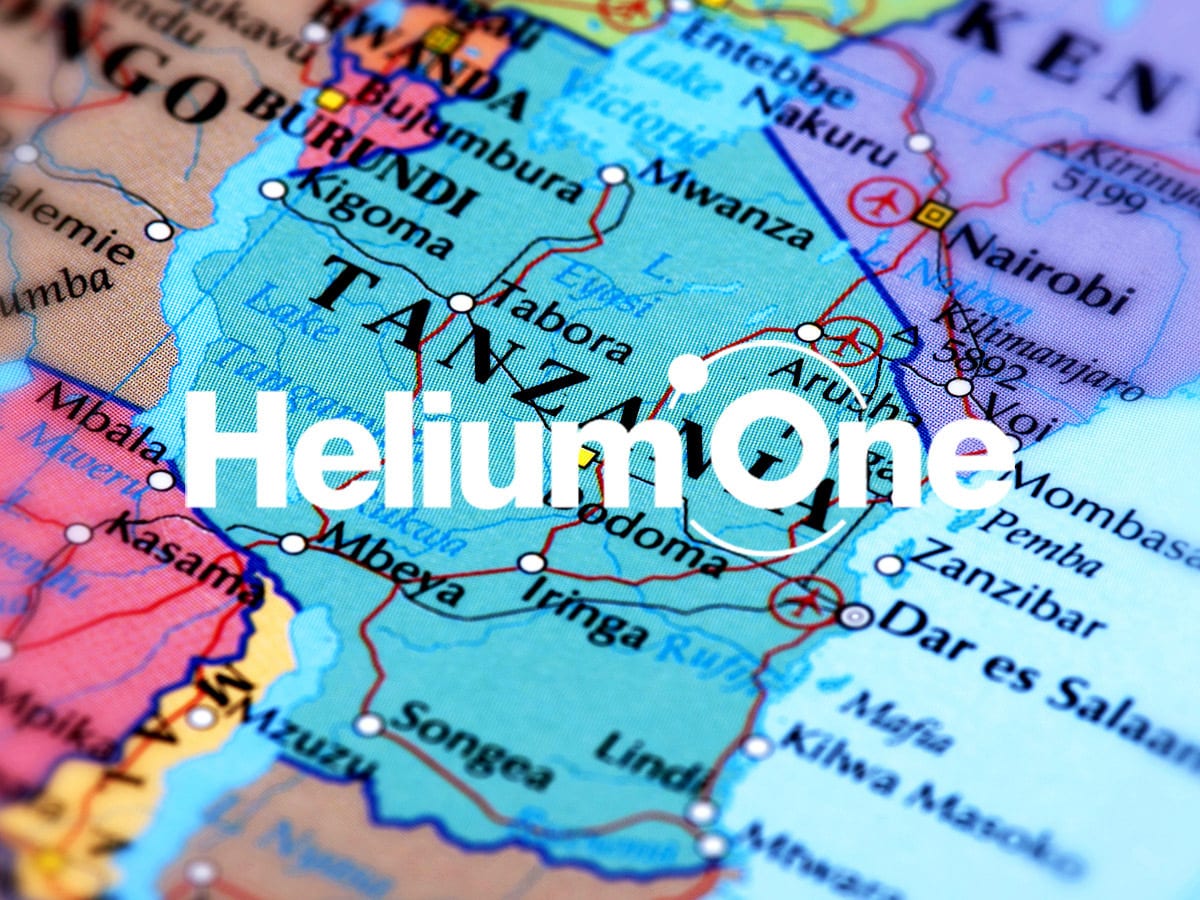Demand for green helium gas has never been higher, and supplies have never been shorter. But Helium One Global reckons it has struck natural gas gold with its plans to drill in Tanzania. Investors have been closely following the helium producer business, lifting the Helium One share price up 19.7% since the start of the year.
Shares in London-listed Helium One Global [HE1.L] have ballooned this year, hitting a high of 14p in January — double what it was worth at the start of 2022. While the stock has since lost some steam, as of 4 April, shares in the helium producer remain 42.5% ahead of the company’s 4 December 2020 market debut price of 5.88p and up 19.7% in the year-to-date.
Strong demand for the natural gas has been a major tailwind for the stock’s year-to-date rise. With key suppliers facing difficulties due to shortages, news of Helium One’s new drilling projects could come at a crucial time for the industry.
The world’s three largest producers of helium — the US, Qatar and Russia — have been under pressure. Experts are calling it ‘Helium Shortage 4.0’, in a nod to the market’s recurring supply chain struggles. The US Federal Helium Reserve has been struggling with technical problems, while a major facility in Qatar is undergoing maintenance work. In Russia, a fire at a newly built helium plant owned by state operator Gazprom [GAZ] put a stop to operations in February, while the country’s invasion of Ukraine has led to greater demand for natural gas from other sources.
Amid this backdrop, Helium One’s plan to tap into potentially rich helium deposits in Tanzania could see the stock surge if it can successfully extract and market the gas.
$2bn
Total value of the global helium market
What’s lifting the Helium One share price?
While supplies may be squeezed in the world’s $2bn helium market, Helium One gave investors some good news earlier this year when it reported that it had identified a working helium system in Tanzania that holds significant reserves of the gas.
Founded in 2015, Helium One launched on the London Stock Exchange market in December 2020 through a reverse takeover of Attis Oil and Gas. The share price later peaked at an all-time high of 29p on 30 July 2021, before steeply dropping following a disappointing gas exploration update, when drilling tests found that the gas could not be extracted. The company spent the rest of the year hovering around the 7.8p mark.
The company, which is still firming up the helium supplies that it wants to sell, is considered a speculative bet by investors, who have varying degrees of confidence in the company’s ability to deliver. In its 2021 results, the company reported a $5.16m loss before tax, up 128% year-on-year.
Positive news from its projects in Tanzania could, therefore, be an important win for the company, though this is still dependent on the success of its projects. “2021’s drilling campaign has de-risked the proposition,” the stockbroker Liberum noted in February, as it began coverage of the stock, which it recommended as a ‘buy’.
“2021’s drilling campaign has de-risked the proposition” - Liberium
Helium One’s inflated future
Helium One says that it will commence its first drilling programme in Tanzania, where it has had a licence to explore since 2015, in May of this year, which could be a tailwind for the stock.
Liberum anticipates that shares in the company could rise as high as 19p, representing a potential 126.7% upside on its 4 April closing price of 8.38p.
Once drilling starts, Helium One should have no problem selling the gas it extracts. The market for helium is expected to grow at a CAGR of 4% between 2022 and 2027, according to Mordor Intelligence, due to it being a hard-to-replace ingredient for other industries. In the aerospace business, SpaceX uses helium to maintain tank pressure. A shift towards nuclear energy (away from Russian-sourced oil and gas) would also require helium in order to fuel the fusion reaction.
Meanwhile, shortages have caused the US National Weather Service to cut back on weather balloon launches, meaning it is missing the opportunity to collect important atmospheric data. Universities and laboratories have also voiced concerns that they will have to shut down operations if shortages and price rises persist.
Still, Andrew Woods, a trader and contributor to the Motley Fool, suggests exercising caution. “It should be noted that companies engaged in explorative operations carry the risk of yielding disappointing results or even nothing at all,” he said, adding that he would not personally be adding the company to his portfolio.
Disclaimer Past performance is not a reliable indicator of future results.
CMC Markets is an execution-only service provider. The material (whether or not it states any opinions) is for general information purposes only, and does not take into account your personal circumstances or objectives. Nothing in this material is (or should be considered to be) financial, investment or other advice on which reliance should be placed. No opinion given in the material constitutes a recommendation by CMC Markets or the author that any particular investment, security, transaction or investment strategy is suitable for any specific person.
The material has not been prepared in accordance with legal requirements designed to promote the independence of investment research. Although we are not specifically prevented from dealing before providing this material, we do not seek to take advantage of the material prior to its dissemination.
CMC Markets does not endorse or offer opinion on the trading strategies used by the author. Their trading strategies do not guarantee any return and CMC Markets shall not be held responsible for any loss that you may incur, either directly or indirectly, arising from any investment based on any information contained herein.
*Tax treatment depends on individual circumstances and can change or may differ in a jurisdiction other than the UK.
Continue reading for FREE
- Includes free newsletter updates, unsubscribe anytime. Privacy policy





